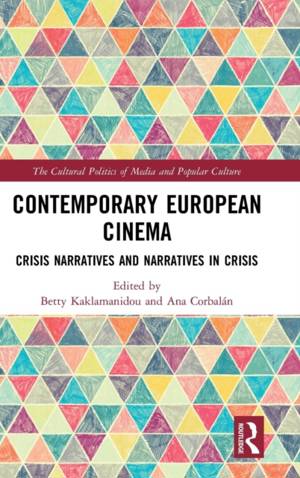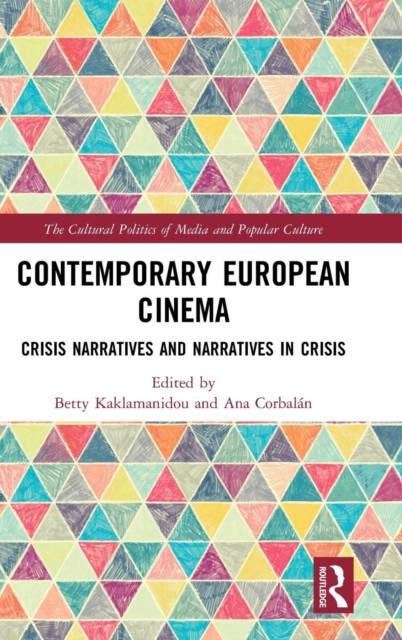
- Retrait gratuit dans votre magasin Club
- 7.000.000 titres dans notre catalogue
- Payer en toute sécurité
- Toujours un magasin près de chez vous
- Retrait gratuit dans votre magasin Club
- 7.000.0000 titres dans notre catalogue
- Payer en toute sécurité
- Toujours un magasin près de chez vous
Contemporary European Cinema
Crisis Narratives and Narratives in Crisis
Description
This book offers a range of accounts of the state of "European Cinema" in a specific sociopolitical era: that of the global economic crisis that began in 2008 and the more recent refugee and humanitarian crisis. With the recession having become a popular theme of economic, demographic, and sociological research in recent years, this volume examines representations of the crisis and its attendant market instability and mistrust of neoliberal political systems in film. It thus sheds light on the mediation, reimagination, and reformulation of recent history in the depiction of personal, cultural, and political memories, and raises new questions about crisis narratives in European film, asking whether the theoretical notion of "national" cinema is less or more powerful during moments of sociopolitical turbulence, and investigating the kinds of cultural representations and themes that characterize the narratives of European documentary and fictional films from both small and large national markets.
Spécifications
Parties prenantes
- Editeur:
Contenu
- Nombre de pages :
- 210
- Langue:
- Anglais
- Collection :
Caractéristiques
- EAN:
- 9781138564404
- Date de parution :
- 03-12-18
- Format:
- Livre relié
- Format numérique:
- Genaaid
- Dimensions :
- 156 mm x 234 mm
- Poids :
- 476 g

Les avis
Nous publions uniquement les avis qui respectent les conditions requises. Consultez nos conditions pour les avis.





